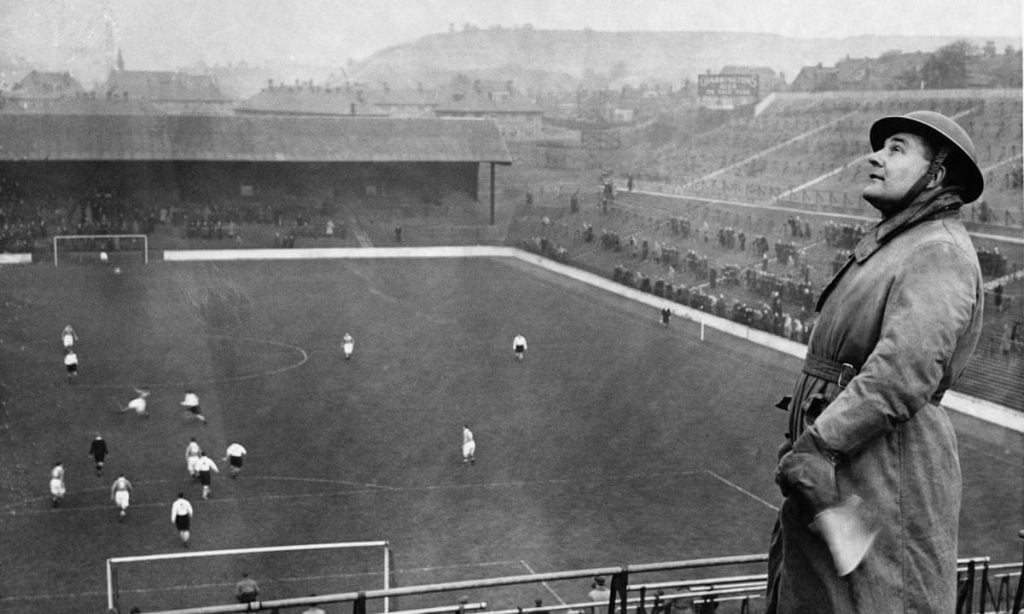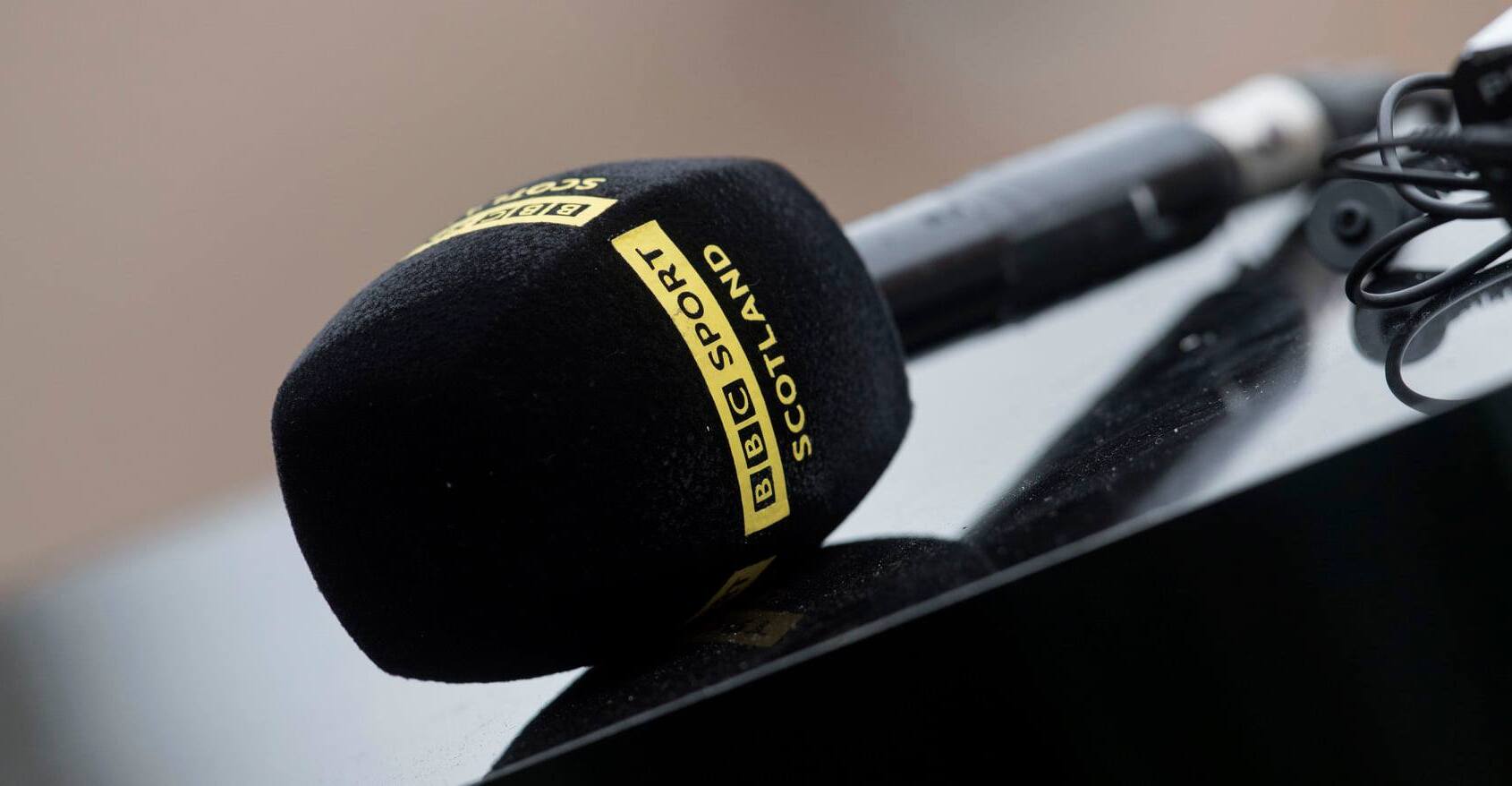On social networks you can find publications about how in 1940 the broadcast from the stadium in Edinburgh was completely fictitious - the commentator did not see what was happening on the field due to fog. We have verified the accuracy of such messages.
The events are usually described something like this: On January 1, 1940, Edinburgh teams Hibernian and Heart of Midlothian were playing, and the BBC broadcast it on the radio. During the war, commentators were prohibited from describing the weather at the match site - the authorities feared that this information would get to the Germans and bombing might begin. Bob Kingsley, who was assigned to the Edinburgh derby, followed this instruction, while the stadium was shrouded in dense fog, due to which the commentator could not see what was happening on the field. Following the ban, Kingsley began to improvise and throughout the game he invented scoring chances, rule violations and refereeing decisions.
These events are described, for example, in materials on the websites "Museum of Facts" And BFM.ru, as well as in several large publics on VKontakte dedicated to football. Blog authors on websites talk about an unusual match Sports.ru, LiveJournal, "Yandex.Zen" And Pikabu, as well as users Facebook and other social networks. At the same time, for example, the publication of “Moscow 24” significantly different in detail: according to the publication, the commentator's name was Bob Crampsey, not Bob Kingsley, and the game itself took place at the end of December, and not at the very beginning of 1940.
The Edinburgh Derby on January 1, 1940 was the subject of several publications in major British media. For example, The Guardian talked about that match twice - in 2009 And 2011 years. In both cases, these were collections of interesting facts: in the first case, about football in general, in the second, about New Year’s matches in the UK. The author of the 2011 note also provides a number of interesting details. For example, Kingsley initially tried to organize a system of kind of messengers from people located near the field, who could periodically rise to the commentary position and talk about what happened. Realizing that most of the 14,000 spectators were seeing little more than himself, Kingsley began to describe the match, making up events as he went along.
The Scottish publication The Scotsman devoted more detailed texts to that game. In a note from 2001 reported, that the chains of messengers still conveyed scattered information to Kingsley about the main events of the match, but most of his commentary had a very indirect relation to what was happening on the field. 13 years later The Scotsman published even more detailed material - it says that the commentator was also guided by the screams of the fans who came to the match (at least those who saw what was happening at the gate). He suggested that the cheers signaled goals, with the louder ones signaling goals scored by the Hibernian home team.
It's funny that The Scotsman published a note about the match immediately after the game on January 1, 1940. The author of that text praised Hibernian players for "teamwork advantage" and their opponents for individual excellence. This message also did not say anything about heavy fog; the reporter limited himself to the wording “the match took place in unusual conditions.”
However, commentary improvisation is mentioned only once on the BBC website. At one time, readers were invited to email questions based on interesting facts related to football, and the audience was invited to answer them. Question about Bob Kingsley sent in the summer of 2003, a certain James Doose, and the answer published the next day.
The emergence of such a question about improvisational reporting in the BBC game at this time appears to be no coincidence. January 1, 2002 took place premiere of Andrew Dahlmeier's radio play Playing a Blinder, "a wartime farce based on a true story." Author reported The Telegraph that when writing its text, it was guided by the story of Bob Kingsley. At the same time, Dalmeier emphasized: “There is no certainty about exactly how many spectators there were at the game, and even about the composition of the teams, because several players were called up to war at the last moment. There was no audio recording of the commentary left, so I had to imagine what it sounded like.”

© Hulton Deutsch/Corbis via Getty Images
We were unable to find more rigorous evidence that the described events of 1940 actually happened (for example, documents or evidence from that time). According to some data, Bob Kingsley described his unusual commentating experience in his autobiography I Saw Stars!, published in 1947, but we could not find this book in the public domain. Dalmeier, in turn, reported in an interview that I learned about this story from an article by football historian Bob Crampsey, however, we were not able to familiarize ourselves with its full text.
Thus, the story of the improvised commentary at the match in Edinburgh is being told by several major British media outlets. Almost identical from a factual point of view, materials on this topic have been published periodically over the past two decades. If what was stated did not fundamentally correspond to the recollections of eyewitnesses and other sources, refutations would have appeared during this time. Nevertheless, publications in the media and social networks are often accompanied by photographs, done 14 years later and has nothing to do with the match between Hibernian and Heart of Midlothian.
Although Kingsley probably presented the match quite brightly in his fictitious commentary, the game was boring wasn't and in reality. According to the official report, two minutes before the end of the first half, Hibernian led with a score of 3:2, but the team went into the break with a one-goal deficit. In the second half of the game, Heart of Midlothian extended their lead, bringing the score to 5:3 in their favor, but by the 75th minute the opponents were equal in number of goals. However, Hibernian failed to maintain a draw - five minutes before the end of the match, Tommy Walker scored the ball into their goal. The game ended with a score of 6:5 in favor of Heart of Midlothian.
Most likely true
- The Scotsman. Classic match: Hibs v Hearts, New Year's Day 1940
- Imperial War Museums. 10 Facts About Football In The Second World War
- ESPN. English football during World War II showed how sport can heal and unify during times of crisis
- Is it true that the photo shows a goalkeeper forgotten during a match due to fog?
If you find a spelling or grammatical error, please let us know by highlighting the error text and clicking Ctrl+Enter.







